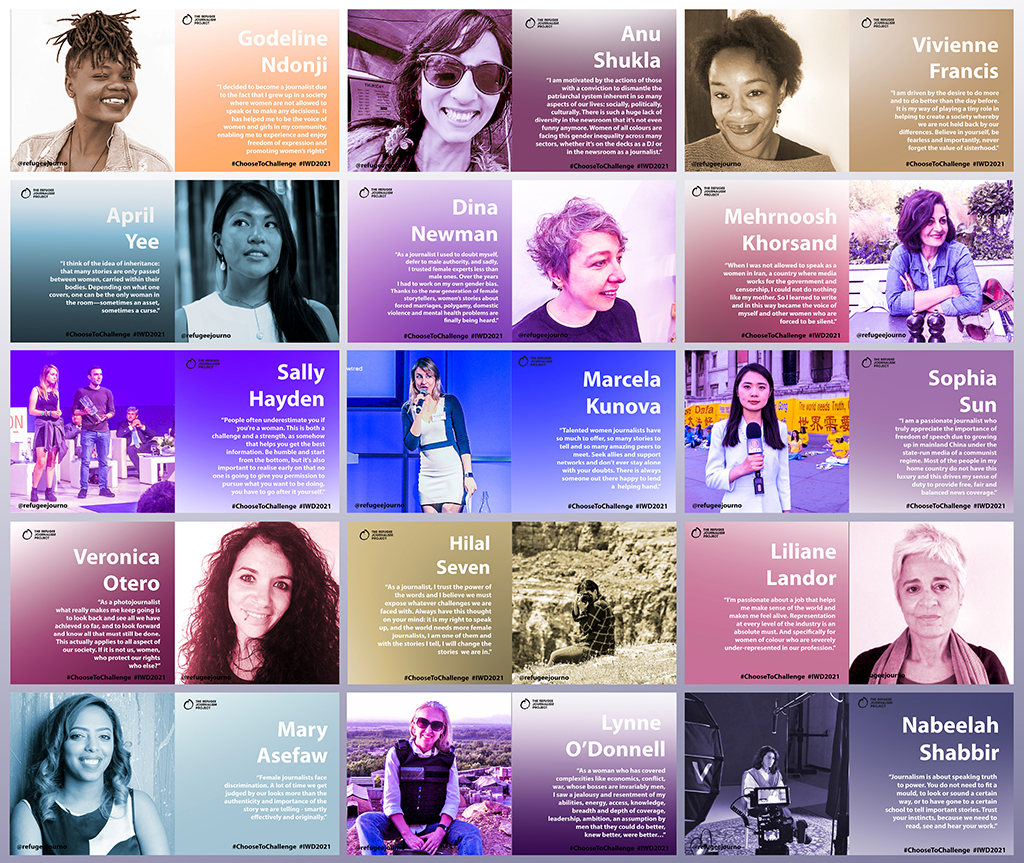Interviews by Veronica Otero
In celebration of International Women’s Day on 8th March 2021, we wanted to take the opportunity to champion the experiences and advice from some of our talented women journalists in our networks.
We believe in the power of telling our stories as a step towards further overcoming the challenges, vulnerability and inequalities that still exist today. Journalism shouldn’t be about gender; life shouldn’t be about gender. Journalism is a source of education and knowledge, a powerful source that allows connectivity, the exchange of information and an opportunity to critique and reflect.
For these reasons, the media has the responsibility and power to promote gender equality. We should use that power in a way that can make the most difference, without disrupting journalism’s responsibility, to tell the truth, and its important role in supporting democracy. This is the only way we can keep up.
We hope the interviews featured here will contribute towards gender equality and women’s empowerment through the media and in our daily lives.
(Please note that when we refer to women this is inclusive of all identities including trans and non-binary people.)
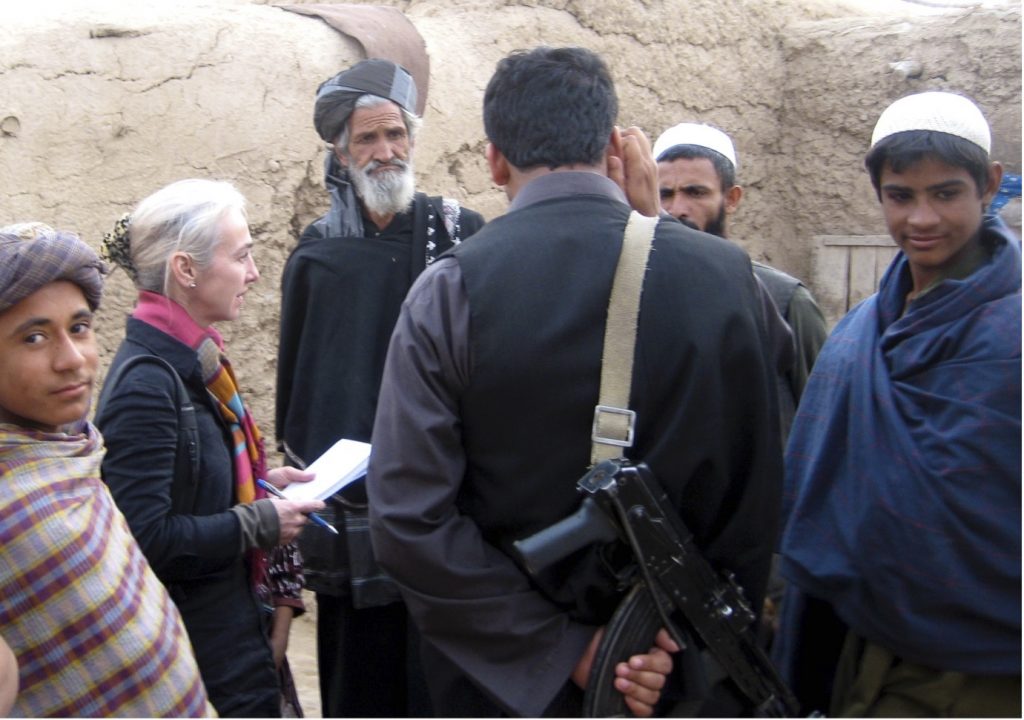
Lynne O’Donnell,
It was a long time before I saw myself as a woman journalist, I thought I was a career journalist who could hold my own and be regarded on merit. And then I looked back on a longish career and saw a pattern of discrimination, misogyny, retribution, impunity for abusers, being overlooked for promotion, assumptions of a lesser competency, cliched labelling of outspokenness, pushiness, complaint; a shift in trends away from my identity as a white woman. I haven’t yet noticed ageism, but I guess that is yet to come.
I began my career in Australia, in newspapers, spent some time radio reporting and radio program producing. I spent a decade covering China – for Reuters as an editor and a specialist correspondent covering commodities, and as the correspondent for The Australian based in Beijing, and also covering North Korea and Mongolia.
After 9-11 stacks, I covered the 2001 invasion of Afghanistan and the war in Iraq. Between 2009 and 2017, I was bureau chief in Afghanistan for AFP and The Associated Press.
What has always motivated me is the importance of the story.
As a woman who has covered complexities like economics, conflict, war, whose bosses are invariably men, I saw a jealousy and resentment of my abilities, energy, access, knowledge, breadth and depth of coverage, leadership, ambition, an assumption by men that they could do better, knew better, were better… the list goes on, but what has always motivated me is the importance of the story.
Lynne O’Donnell is a writer, researcher & journalist. Between 2009 – 2017 she ran large multi-media, multi-national, and international news agency bureaus in Afghanistan as bureau chief for both The Associated Press and AFP. She holds an MA in War Studies from King’s College London and is a visiting research fellow at KCL’s Institute of Psychiatry, Psychology and Neurosciences. She is also a fellow of the Dart Centre for Journalism and Trauma at Columbia University’s Graduate School of Journalism.
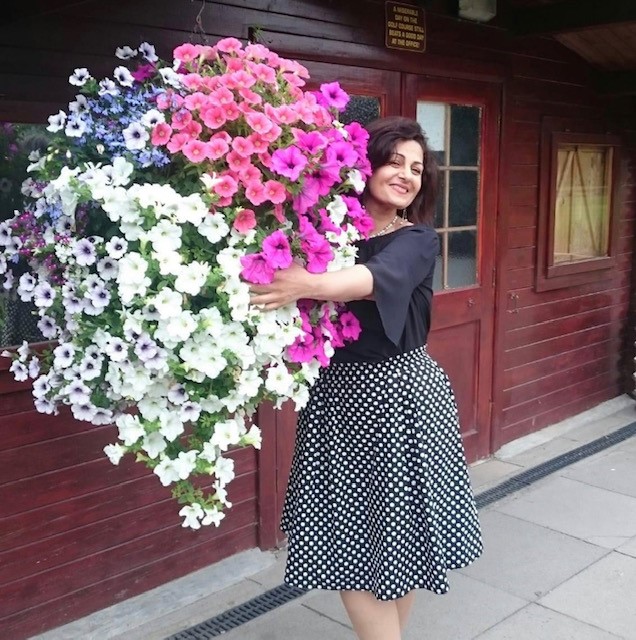
Mehrnoosh Khorsand,
I was forced to get married at age fourteen. I was not allowed to go to school. When I was not allowed to speak as a woman in Iran, a country where media works for the government and censorship, I could not do nothing like my mother. So, I learned to write and, in this way, became the voice of myself and other women who are forced to be silent.
In many countries like Iran, female journalists still face challenges like sexual harassment, sexual accusations, threat to their children, kidnapping, torture, murder. Many are forced to make false confessions of treason, espionage, illegitimate relationships, forced to record it and broadcast it. We journalists can help to fight these human rights abuses.
As a refugee myself, what is very important, is that women refugee journalists integrate with the host community, learn the host country language, and reach out to organisations that will support and guide them. And during that time, they should always look at the best ways to re-start their activities and achieve their goals.
Mehrnoush Khorsand is an Iranian screenwriter and writer. Her writing told the story of the bitterness, discrimination and injustice in society and was shown on Iranian TV in a three 26-episode series. She has published several books, some of which have been translated into English “How I rescued my daughter” – based on the author’s own experiences, was a finalist for Author of the Year Award of the Daisy Pettles Grants for women writers & a nominee of the Mayor of Croydon Awards in 2020. 2020. She has also written scripts for performance’s theatre in the UK.
Dina Newman,
When I became a journalist, older colleagues believed they had a choice: either a family or a fulfilling job. Travelling worldwide, going to war zones, living abroad and working long shifts was seen as incompatible with raising a family. This perception is changing now, as more ambitious young women are joining the profession and are supported by their families. Do not feel that you have to sacrifice your life for your career. You can have it all if that’s what you want.
Do not feel that you have to sacrifice your life for your career. You can have it all if that’s what you want.
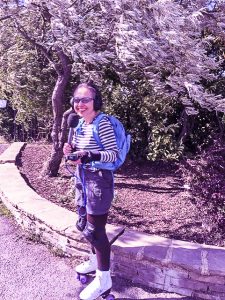
During the course of my work, my challenges were mainly self-inflicted. As a woman I used to doubt myself, defer to male authority, and sadly, I trusted female experts less than male ones. Over the years I had to work on my own gender bias.
I was born in Moscow in 1965, I never liked Soviet Communism and left the country as soon as it opened up in 1990. I came to London as an ardent believer in capitalism and free markets—and over time, realised that capitalism also has its fatal flaws. These days, I am more likely to listen to Greta Thunberg than any politician, left or right.
I love telling stories about other women, and it’s only in the past few decades that so many taboo stories have emerged from male dominated societies.
Women in many parts of the world are opening up to female journalists in a way that they would never do to a man. Thanks to the new generation of female storytellers, women’s stories about forced marriages, polygamy, domestic violence and mental health problems are finally being heard.
Dina Newman left the USRR in 1990, where she studied international business and worked on an educational project about market economy and democracy for Russia. In 1994, she joined the BBC Newsroom as the Europe Editor, and spent her last years working for a radio programme and a podcast, Witness History, where people give first-hand accounts of major historic events. Today, she is researching impact investing and plans to report on how business can help solve the world’s most urgent problems.
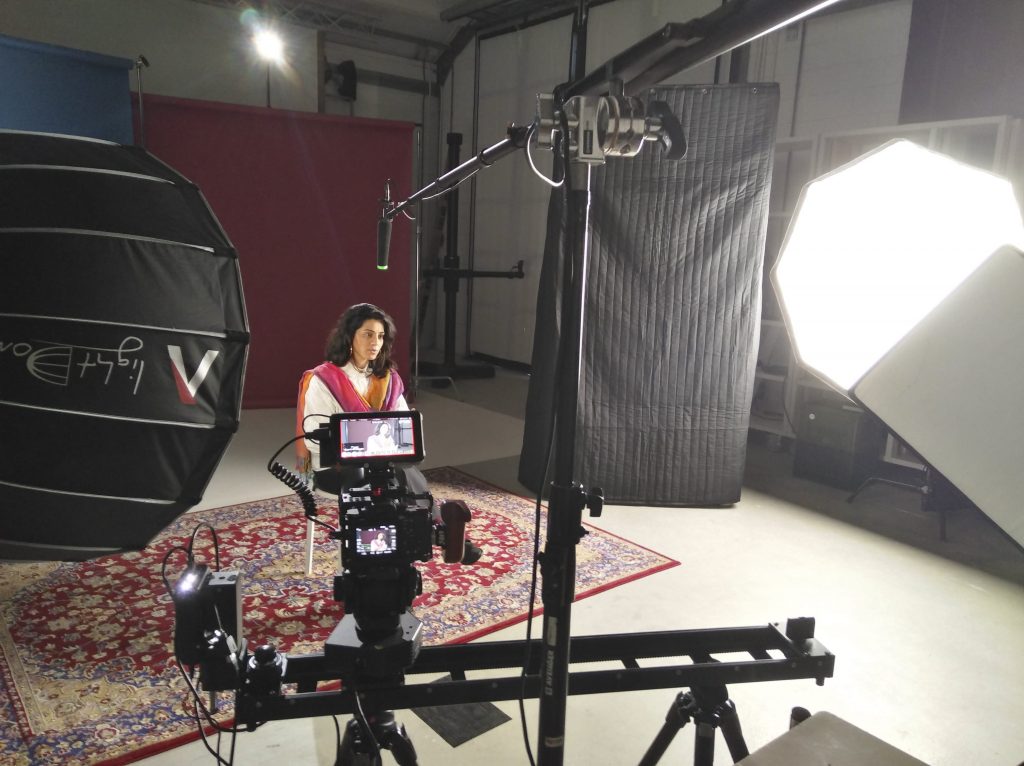
Nabeelah Shabbir,
I have recognised over time that our stories are still not being received with an openness that is required from those on the other side of that line; those reinforcing the status quo.
I am currently working on a research project for UNESCO with the International Centre for Journalists, an NGO based in Washington, and I have interviewed so many women journalists who face online harassment for the journalism that they produce. I am bowled over by their strength and conviction and want to learn more about their work and how you can draw a direct line between that and how they are being targeted as journalists – through a very gendered, intersectional lens.
I have come to the realisation that I police what I say and what I reveal about myself so that it is not weaponised against me as has been done to countless journalists coming from a specific background. This self-censorship and holding back clearly does not contribute to a free speech environment where everyone can feel safe, but also not pigeonholed into voicing their opinions on something related to their identity.
The tech platforms must do a better job of fostering an environment where an online conversation can more truly respect the norms of a respectful conversation where we can disagree with some semblance of understanding.
You do not need to fit a mould, to look or sound a certain way, or to have gone to a certain school to tell important stories.
Journalism is about speaking truth to power. You do not need to fit a mould, to look or sound a certain way, or to have gone to a certain school to tell important stories. Trust your instincts, because we need to read, see and hear your work.
The pandemic has changed some of the rules but there is absolutely nothing stopping you from continuing to be put into galaxies where people who you admire and can learn from can teach you something about their work.
Nabeelah Shabbir is a former Conversation Editor at the Correspondent and a Guardian journalist. In 2015 she shared a British Journalism Award with the Guardian’s Keep it in the Ground’ team. She has co-written a series of reports on transatlantic and European digital media industry, and innovation in the Global South for the Reuters Institute for the Study of Journalism. She has written about Europe and environmental issues, including climate change and renewable energy.
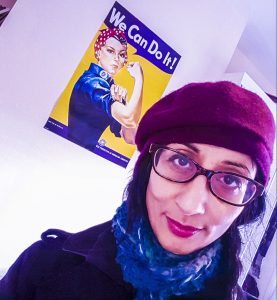
Anu Shukla,
There is such a huge lack of diversity in the newsroom that it’s not even funny anymore. Women of all colours are facing this gender inequality across many sectors, whether it’s on the decks as a DJ or in the newsroom as a journalist.
I noticed how my white male counterparts that had just started at the major broadsheet I worked at were given the opportunity to excel as I got left behind. At the same time, I felt ignored by other members of staff around me as if I didn’t exist.
Something in the corporate media environment needs to change as the impact on mental health can damage confidence in the long run. Acknowledging the existence of structural racism and gender inequality would be a positive start. It’s also time to reverse the impact of misguided attitudes by re-learning what we know about race and gender inequality with training sessions and lectures on the impact of unconscious ‘otherising’.
It’s also time to reverse the impact of misguided attitudes by re-learning what we know about race and gender inequality…
However, the biggest challenge is being ‘pigeonholed’ into writing certain stories because you happen to be female and or a person of colour. It means you may have to work 10 times harder than your white male colleagues just to be noticed.
Know you are of immense value and an asset to any media organisation you work with and that you are a great source of knowledge and wisdom to those around you who have not had your experience.
Anu Shukla is a creative thinker and multimedia journalist with bylines at media organisations that include Reuters, The Independent, Al Jazeera, The New Internationalist and others. She is Inspired by a passion for discovering untold stories. Anu has worked on a rich and diverse selection of stories over the years, from the underlying complexities of the Rohingya crisis, to the poet teaching lucid dreaming to refugees.
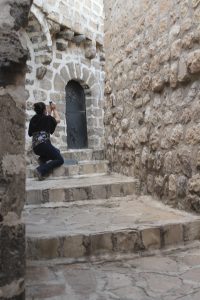
Hilal Seven,
Being in a male-dominated world is already such an enormous challenge, imagine this male voice is being used as a powerful tool through the media and press industry for years. So, in every stage of journalism, we female journalists are facing up to challenges. We could count so many examples as harassment, violence, gender discrimination in employment, sexual insult, low salaries, etc.
I think to address these issues: firstly we all must educate ourselves and secondly, it is not only about understanding gender equality but also about questioning life. The life we live in has a male-dominated structure, we must question all its rules and change them with a female point of view.
I am always motivated by the stories of women! I love female perspective and I believe without an approach of a female storyteller, the stories would not be colourful or creative enough.
Without an approach of a female storyteller; the stories would not be colourful or creative enough.
Hilal Seven studied business at Istanbul University. Her journalism focuses on migration in Turkey and the Middle East. She has worked with international journalists from all over the world reporting on the impact of the Syrian’s civil war in the South East of Turkey. In 2016 she moved to the UK, where she has attended an internship with Marie Claire UK, in which one of her stories was long-listed for One World Media Awards. She has produced a radio programme called Ezber Bozan. Currently, she is a participant in the Refugee Journalism Project.
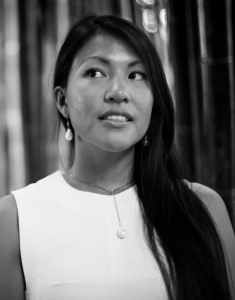
April Yee,
I think of the idea of inheritance: that many stories are only passed between women, carried within their bodies. Depending on what one covers, one can be the only woman in the room—sometimes an asset, sometimes a curse.
In rare cases, sites—a petrochemical plant in Saudi Arabia comes to mind—will not allow visits, citing a lack of facilities for women. More commonly, especially when one is covering power (often concentrated among straight men) there can be a danger inherent in physical proximity. Finally, some PRs seem to more readily go off on women; luckily, you don’t work for them.
Share your challenges with other women. Befriend the photographer (or videographer or other non-writing newsroom staff). Photographers are keen noticers of the world whom all reporters can learn from. I aspire to have their calm.
I think of the idea of inheritance: that many stories are only passed between women, carried within their bodies.
April Yee writes about colonialism, climate change, and other effects of power. As a writer and translator with bylines in Newsweek and The Boston Globe, she received funding from the Society of Environmental Journalists, moderated CEO panels in Asia and the Middle East, and reported in more than a dozen countries at sites ranging from Iraqi oil fields to the Chernobyl nuclear power plant. Since moving to London, she writes poetry, fiction, and translations of literature from French and Spanish. In 2020 her work was commended by Ambit, shortlisted by Live Canon, and winner of the Ware Sonnet Prize judged by Glyn Maxwell. She is also a Harvard and Tin House alumna.
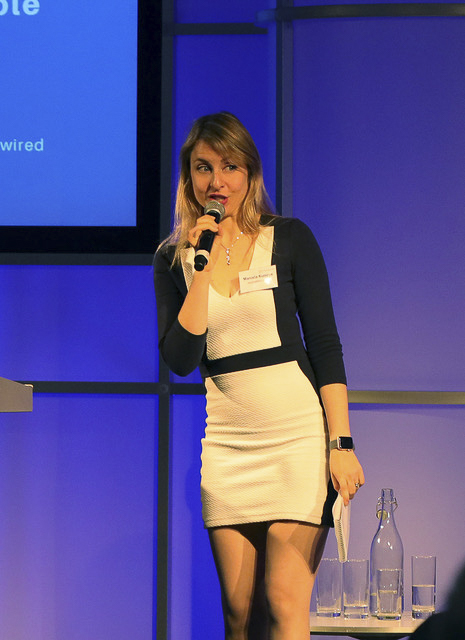
Marcela Kunova,
Human stories are fascinating and I never cease to be amazed by people’s resilience, imagination, grit and creativity. I love telling stories that inspire those who are under-represented in media coverage; you can’t be what you can’t see. Stories are a powerful tool to spark change.
Women journalists are disproportionately more likely to be harassed and abused online, receive sexualised threats and violent or pornographic imagery aimed at intimidating or silencing them. Some women journalists even decide to leave social media – or indeed the profession – for good because of online abuse, which impoverishes diversity of voices in the public debate.
Women journalists are also still judged on their looks and when they don’t conform to social expectations of female beauty, they are often penalised and/or targets of online abuse.
Women journalists finally face the same workplace discrimination as other working women: being overlooked for promotions, lower pay, and being penalised when taking maternity leave.
Seek allies and support networks and don’t ever stay alone with your doubts.
I would like to see more women actively fighting it through reporting abusers, notifying employers and seeking support. Platforms must do more to protect journalists and is up to us to increase the pressure.
Talented women journalists have so much to offer, so many stories to tell and so many amazing peers to meet. Seek allies and support networks and don’t ever stay alone with your doubts. There is always someone out there happy to lend a helping hand.
Marcela Kunova is the editor at Journalism.co.uk covering media news, organising Newsrewired conferences and media training courses. Prior to this, she was an assistant editor at Citywealth, trained at CNN in London and worked as a freelance journalist with work published in The Guardian, The Independent, CNN and the Huffington Post, amongst others. Before journalism, I worked as a communication officer, adviser, and project manager for non-profit organisations in Strasbourg, France.
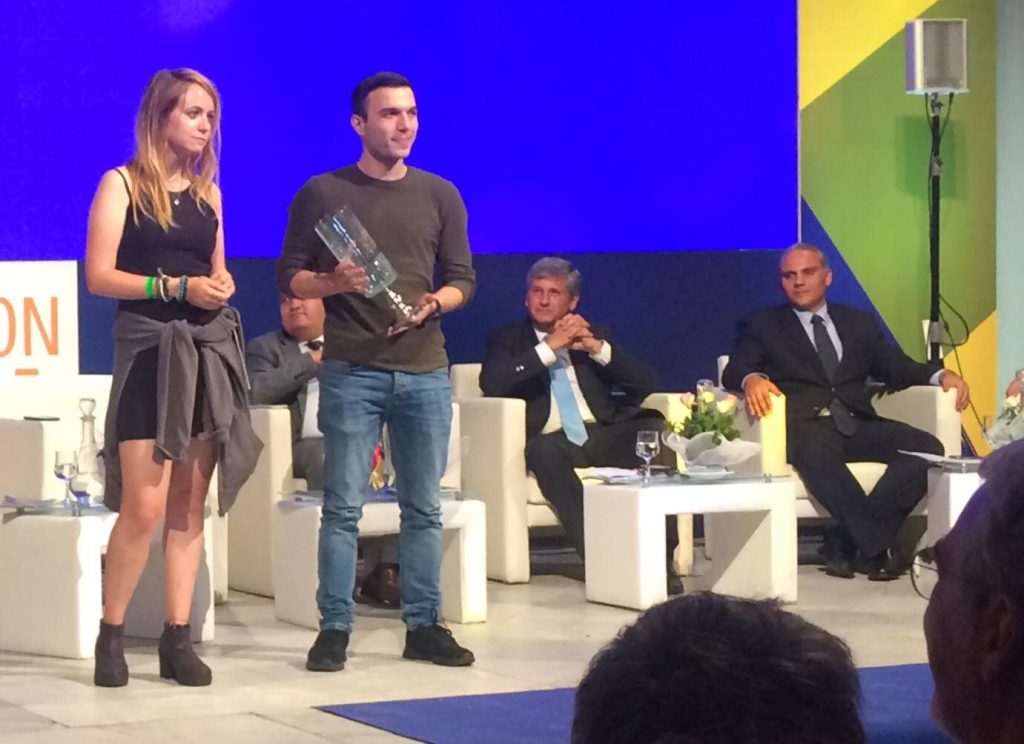
Sally Hayden,
I’m interested in challenging preconceptions and providing steady coverage of issues that other journalists aren’t focusing on. People often underestimate you if you’re a woman. This is both a challenge and a strength, as somehow that helps you get the best information.
Freelancers deal with low pay, little support, lengthy delays before stories are commissioned or published. It’s the same for men and women. I think editors need to realise that better pay for freelance journalists directly converts into better security; while the general public needs to realise that paying for news improves the quality of the work we can do.
no one is going to give you permission to pursue what you want to be doing, you have to go after it yourself.
If you are starting off your career, be humble and start from the bottom, but it’s also important to realise early on that no one is going to give you permission to pursue what you want to be doing, you have to go after it yourself.
I advise to spend time figuring out what kind of access or knowledge you have that other journalists don’t have, and start pitching stories or developing ideas around that. Try to build a social media presence if you don’t have one. Any language skills are a huge asset, even if editors don’t seem to realise that, so look for ways you can utilise them. Finally, persistence.
Sally Jayden is a journalist and photographer currently focused on migration, conflict and humanitarian crises. She has reported for outlets including VICE, CNN International, the Financial Times, TIME, the Thomson Reuters Foundation, BBC, the Washington Post, the Irish Times, the Guardian, the New York Times, Magnum Photos, Channel 4 News, Foreign Policy, Al Jazeera and NBC News, and has reported from across Europe, the Middle East and Africa. Sally is currently in Uganda for the coronavirus lockdown and working on her first book.
Liliane Landor,
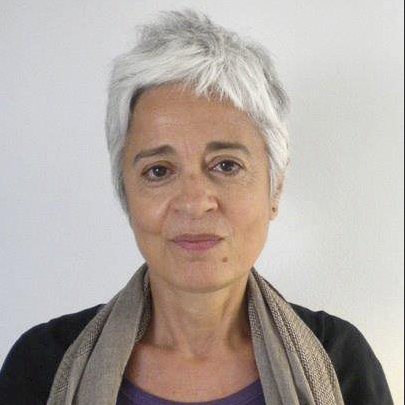
I would not know how to do anything else. I’m passionate about a job that helps me make sense of the world and makes me feel alive. It hasn’t always been easy. Making it a woman of colour journalist is notoriously difficult in our profession.
Representation at every level of the industry is an absolute must. And specifically for women of colour who are severely under-represented in our profession.
Be curious, own your voice, know your stuff, have the courage of your convictions and speak truth to power. And be patient!! And if you’re a refugee, it doesn’t get any easier. You have to work twice as hard, so read a lot, broaden your circle, do not box yourself in, do not just do stories related to your background or country of origin. This is a good specialism but not the only one.
Liliane Landor is a journalist and broadcasting executive who works for Channel 4 as Head of Foreign News. She is also a trustee of One World Media. She worked for the BBC from 1989 to mid-2016, becoming controller for languages at the BBC World Service, where she was responsible for radio and television broadcasting in 27 languages. She’s Arab British of Cuban mother and was born in Lebanon. She speaks five languages.
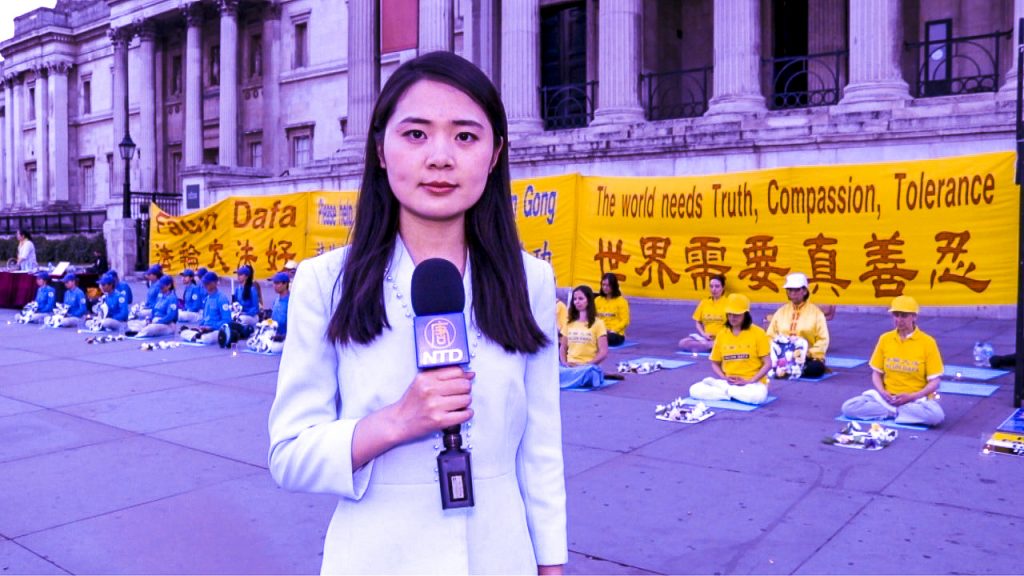
Sophia Sun,
I am a passionate journalist who truly appreciates the importance of freedom of speech due to growing up in mainland China, under the state-run media of a communist regime. Most of the people in my home country do not have this luxury and this drives my sense of duty to provide free, fair and balanced news coverage.
I think the most challenging thing for a female journalist is security, especially when a female video journalist has to report from the field with all filming equipment, on breaking news for example.
I would say to the female refugee journalists please be brave to rebuild your journalist career in the UK. With the support and encouragement from your peers, you will be able to restart your journalism career in the UK with freedom of speech, for sure. Do not be afraid of it and just do it.
Please be brave to rebuild your journalist career in the UK
I would also say to a female graduate that journalism is a great role to be if she has the passion to have an impact on society and speak up for vulnerable people.
Sophia Sun holds a Masters in Media & Communications from London School of Economics. After graduating, she spent two years as a UK correspondent for New Tang Dynasty Television (NTD), an independent media company. Sophia’s journalistic work focuses on UK politics, human rights issues, and traditional cultures – such as the persecution of Falun Gong practitioners, Hong Kong/ Taiwan demo protests and Shen Yun Performing Arts.
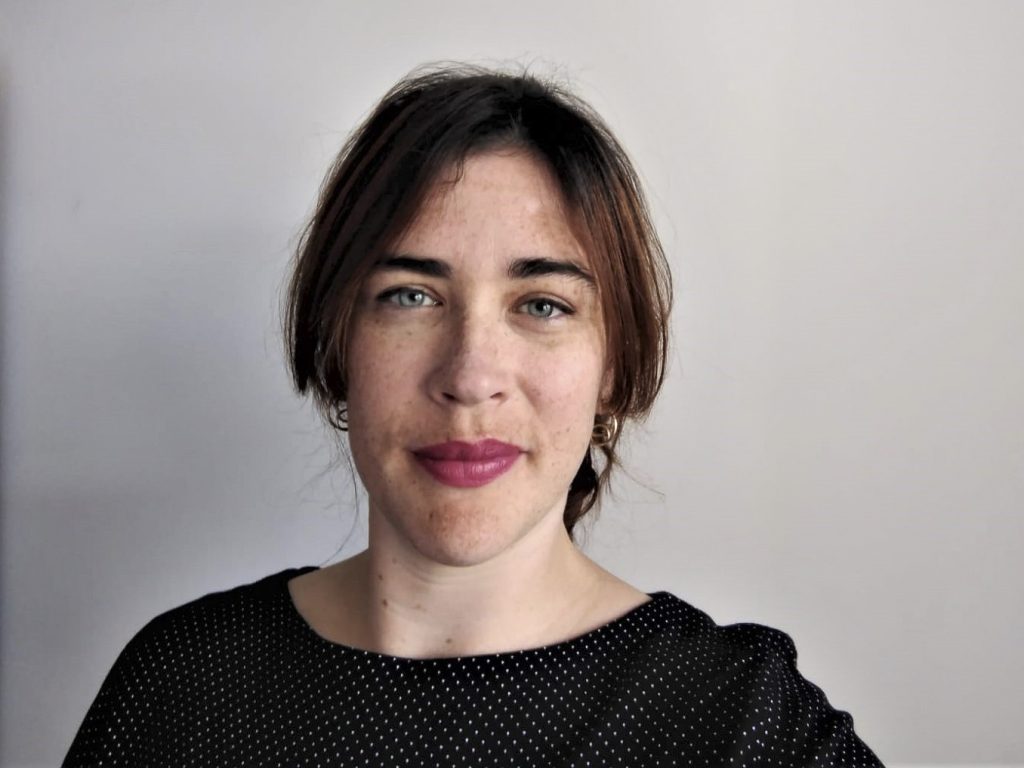
Emma Jones,
For so long, the stories of women have been silenced or disbelieved, and this has shaped the society we live in. When women share their stories – of abuse, injustice, and trauma, but also joy, love and humour – they are stepping outside of the boundaries that have been created for them. By sharing those stories, we can better understand the experiences of everyone in our communities and start doing the essential work in creating a fairer society for all.
Female journalists we work with often express frustration at not seeing their experiences reflected in the media, while also being concerned that they will be pigeonholed into only covering stories about their identity and trauma.
I have been lucky to meet some truly fearless female journalists, but they face more risks to their safety and wellbeing, often receiving harsher criticism for speaking out, more vitriol on social media, even threats to their physical safety.
We understand that not all women face the same issues. Across all our programmes at the Guardian Foundation, we actively and explicitly aim for equal gender representation at a minimum, both in participants and in trainers. We recognise that it’s not just important supporting women during their journalism careers, but also encouraging them to join the profession in the first place, so we try to provide resources and opportunities for young women and girls to see themselves in the news and to consider a career in journalism.
Emma Jones has worked at The Guardian Foundation since 2018, supporting the delivery of various projects, primarily those aimed at young people and the international programmes. She holds an MSc. from the International Inequalities Institute at the London School of Economics. Before joining the Foundation, she worked in education, ethical business and sustainability.
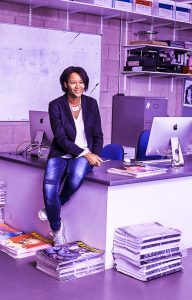
Vivienne Francis,
I am driven by the desire to do more and to do better than the day before. It is my way of playing a tiny role in helping to create a society whereby we are not held back by our differences. I also take huge inspiration from the phenomenal women that I have the fortune of meeting and working with, some of whom are featured in this article.
We do face gender-specific challenges when it comes to the Refugee Journalism Project. Since we started in 2016, we have worked with many brilliant women journalists and storytellers, but we get significantly more male applicants.
It is important that we address this gender imbalance in order to uphold the equality values that are central to our work and essential for society. I see it as our responsibility as a project to find ways of attracting more women to join us.
My message to young women trying to break through into journalism is to believe in yourself, be fearless and importantly, never forget the power of sisterhood.
Vivienne is a Reader and Senior Lecturer in Social Justice Journalism and Knowledge Exchange at London College of Communication. She founded the Refugee Journalism Project an initiative that supports forcibly displaced and exiled journalists to re-connected with their careers in the UK. Prior to joining academia, Vivienne worked as a producer with the BBC and as a print journalist. She started her journalistic work at the Voice Group, focusing on issues such as deaths in custody, inequalities in the education system and miscarriages of justice.
